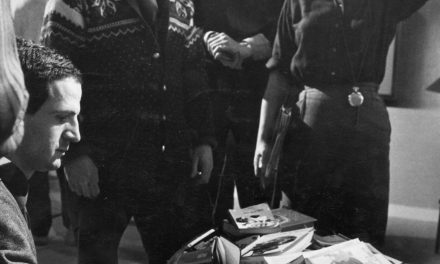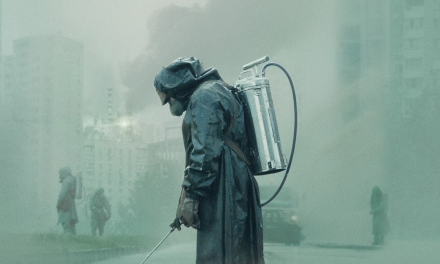CONFERENCE – Vulgarity in literature and the visual arts of the English-speaking world
Paris Sorbonne University June 2, 2018
Deadline for abstract submissions: March 19, 2018.
Conference organised by the doctoral student research group OVALE – part of the VALE research group, EA4085, Sorbonne University.
Keynote speaker: Jonathon Green, slang lexicographer and author of Green’s Dictionary of Slang
“thou claybrained guts, thou knotty-pated fool, thou whoreson, obscene, greasy tallow-catch” Shakespeare, Henri IV, I (I,4)
With these colourful words, Shakespeare conjures up his most accomplished comic character. A figure of garish excess in both body and language, the larger-than-life Falstaff is a unique literary creation. In him, vulgarity is not only given prime position but posterity in the world of belles-lettres. The representation of vulgarity remains nonetheless a polemical choice. Time and again, the vulgar has been suspected of a sensationalist agenda or of compromising quality. However, for a number of thinkers and literary critics, it is a legitimate attempt to capture the vitality of life through language. This only exemplifies the notional ambivalence of the term and the tension at the heart of its definition: between inclusion and exclusion, between what is common, oral, shared by all (vulgar tongue) and what is cheap, in bad taste and unrefined. This conference therefore aims to map and confront the various uses and forms of the vulgar in the literature and the arts of the English-speaking world.
Proposals may consider (but are not restricted to) the diegetic representation of the vulgar and reflection on what makes a vulgar character. This could summon ideas of the stereotypical nouveau riche (the vulgarian), whose previous lower social class is made only too obvious by his or her ostentatious and excessive behaviour, which makes him or her the butt of jokes on the part of the Establishment. At the other end of the spectrum, the character of the hoi polloi can also become an object of aesthetic fascination (think Eliza Doolittle in G.B. Shaw’s Pygmalion). Social characteristics that are perceived or represented as “vulgar” may change according to historical (think of the nationalist clash between Saxon vigour and French refinement in Walter Scott’s Invahoe) or geographical contexts (the opposition between Europe and the United Stated in The Ambassadors by Henry James, or The Buccaneers by Edith Wharton). Particular attention may also be paid to the different idiolects capable of conveying this “vulgarity”.
The linguistic dimension of the notion equally calls for a reflection on the poetic fertility of the vulgar tongue. What does the inclusion in texts of this oral, ordinary, popular language create? The use of slang, dialects or various accents can be regarded as an active fight against the ossification of the written word (e.g. Huckleberry Finn’s verbal irreverence, or Robert Burns’ Scot language); but it can also mark a loss of vitality compared to ever-changing unwritten language. The struggle against established language invites us to examine the role of so-called vernacular languages in postcolonial literatures. Does the “vernacularisation” of English subvert the linguistic norm, create a poetical, multifaceted idiom, or simply an exotic effect? How does “standard English” include other languages in its discourse?
Finally, proposals may focus on a more specifically aesthetic and generic perspective. There are vulgar genres in literature (vulgar comedy, sensation novels, airport novels, crime or sentimental fiction, etc.) and the visual arts (the hierarchy of the genres was theorized in the 17th century). The codes associated with such genres (obscenity, sentimentalism, pornography, etc.) often discredit objects that would otherwise be considered legitimate. But these codes and genres, being excluded from high-brow culture can nevertheless be inspiringly reclaimed (calling to mind camp or trash aesthetics, or Hogarth’s promotion of the English school though the re-evaluation of minor genres such as satire and caricature).
Proposals for papers dealing with how literature or the visual arts relate to philosophy, sociology or linguistics will be welcomed.
Please send a 300-word abstract (for a 20-minute presentation) with a short bio-bibliography to the following address: laboratoire.ovale@gmail.com.
Deadline for abstract submissions: March 19.
Notification of acceptance: March 28.
Bibliography:
BERNSTEIN, Susan D., MICHIE, Elsie B.(eds). Victorian Vulgarity: Taste in Verbal and Visual Culture, Farnham, Ashgate, 2009.
BRADSHAW David, POTTER Rachel (eds.). Prudes on the Prowl, Fiction and Obscenity in England, 1850 to the Present Day, Oxford University Press, Oxford, 2013.
GREEN, Jonathon. The Vulgar Tongue: Green’s History of Slang, Oxford University Press, Oxford, 2015.
HUXLEY, Aldous. “Vulgarity in Literature” (1930), in Music at Night, Chatto and Windus, London, 1949.
LEWIS C.S. Studies in Words, Cambridge University Press, Cambridge, 1960.
RUSKIN, John. “Of Vulgarity” in The Complete Works of John Ruskin, Crowell & Co, New York, 1900.
SONTAG, Susan. “Notes on ‘Camp’” (1964), in Against Interpretation and Other Essays, Farrar, Straus and Giroux, New York, 1966.
A more detailed bibliography is available on OVALE’s research blog: http://ovale.hypotheses.org/ovale-2017-2018
Key Information and Contact:
– This conference is open to all.
– The selection committee is composed of Charlotte Arnautou, Marianne Hillion and Clara Manco, doctoral students and head members of OVALE, as well as Professors Élisabeth Angel-Perez, Frédéric Regard and Alexis Tadié.
– Some of the papers will be published on VALE’s online journal Sillages Critiques.
– The conference will take place at Paris-Sorbonne (1 Rue Victor Cousin, 75005 Paris).
– Contact: laboratoire.ovale@gmail.com
URL reference :
http://ovale.hypotheses.org





